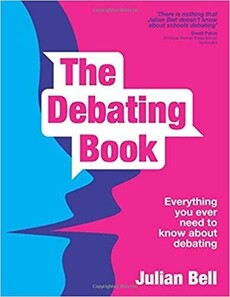
posted 12th November 2023

Mpegwa was in a cricket team I coached at a school I once worked at. Mpegwa was six foot four (at 15!). Being six foot four made Mpegwa a terrifyingly effective fast bowler, as his height meant he could deliver the ball quicker and sharper than anyone else. However, Mpegwa's talent for cricket was not matched by his enthusiasm for the game or his commitment to the team. He would always rather be somewhere else. He regularly skipped practice and turned up late to matches. I would have been happy to drop him in favour of a less talented but more committed student, but I couldn't, because the school had a very strict policy that anyone who was good enough to play in a team had to play in it whether they liked it or not.
One week, Mpegwa approached me in the corridor.
'I can't play in the match on Saturday, sir.'
'Why's that?'
'I've got to be at my swimming club.'
I spied an opportunity. If Mpegwa was as good at swimming as he was at cricket, he might be representing his swimming club at a major tournament. This could be enough to persuade the Head of Cricket to let me release him from the match, perhaps even from the team, in favour of someone who actually wanted to play. But I needed more evidence to support my case.
'Why have you got to be at your swimming club?'
'Because it's essential.'
'Why is it essential?'
'Because I've got to be there.'
'Yes, Mpegwa, but why have you got to be there?
'Because it's essential!'
'But why is it essential?'
'Because I've got to be there.'
'But Mpegwa, why have you got to be there?'
'I already told you, because it's essential.'
'But why is it ...'
'Because I've got to be there!'
We went on like this for a bit. After a while, I gave up, and told him he had to play on Saturday. He turned up fifteen minutes late, causing great inconvenience to everyone.
Mpegwa and I got trapped in a circular argument. A circular argument is one where each side takes an entrenched position, and keeps repeating it. It is quite common between people who have known each other a long time (observe your parents ...). But it is not helpful in debating (or in life).
Here's an example. The motion (in a BP debate) is This house would ban anyone born after 2009 from smoking. The Leader of the Opposition argues that the measure would mean a significant loss of revenue from the tax on tobacco. The Deputy Prime Minister responds that the savings for the NHS no longer having to treat people with smoking-related illness would more than compensate for this loss. So far so good. Then the Deputy Leader of the Opposition repeats the point about the loss of tax revenue. The Member of the Government replies with the point about the savings for the NHS. Yes, says the Member of the Opposition, that's all very well, but what are you going to do about the loss of taxes?
A debate which becomes repetitive and unchanging is not good for either side. A successful debate is one where the argument is constantly flowing and changing. So how could our smoking debate have gone better?
The Leader of the Opposition still argues that the measure would mean a significant loss of revenue from the tax on tobacco. The Deputy Prime Minister still responds that the savings for the NHS no longer having to treat people with smoking-related illness would more than compensate for this loss. The Deputy Leader of the Opposition replies that making something illegal does not stop it from happening; a great many people take illegal drugs such as heroin and cocaine, often damaging their health in ways which require the NHS to intervene. If smoking was illegal, people would still do it, and it would still make them ill. Agreed, replies the Member of the Government; but taking your example of currently illegal drugs, the NHS provides clinics to help people overcome their addictions to these drugs - it could do the same with smoking even after it was illegal. The Member of the Opposition replies that at the moment smokers can ask their GP for help with kicking their habit without fear of prosecution; once their habit is illegal they are far more likely to conceal it and will be less likely to ask for help.
See the difference? Both sides will be scoring much higher, as they are both expanding and strengthening their arguments by responding in new and varied ways to the other side.
If you find yourself trapped in a circular argument, get out of it as soon as you can by moving on to new territory. If the other side try to drag you back in, move in a different direction. Be as nimble in the debating chamber as Mpegwa was on the cricket pitch (when he turned up).



